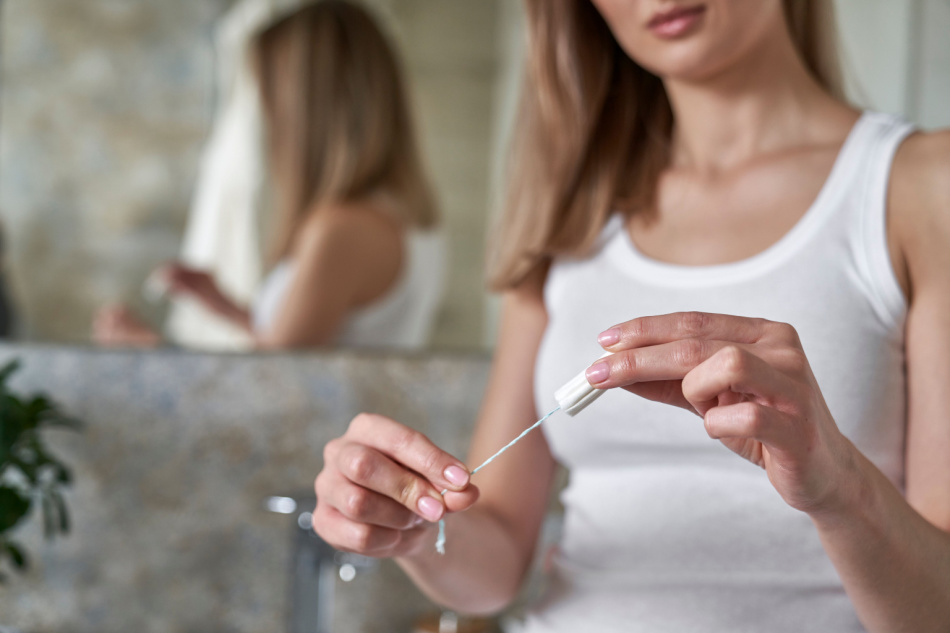Using cutting-edge technology, recent Johns Hopkins University graduates have made a significant advancement that could safeguard more women against cervical cancer.
Cervical Cancer Awareness Month is observed every January. In the United States, the disease kills 4,000 people with cervixes each year. However, a group of Johns Hopkins Carey Business School graduates may have developed an artificial intelligence program that could help save lives and bring this number down.
It’s known as the “Smart Tampon.”
What is the Smart Tampon
The idea behind the Smart Tampon was devised by graduate students Madeleine Howard and Hayley Hoaglund. Their design is meant to take the place of a regular pap smear, which checks for cancer but is typically unpleasant.
Instead, it would use artificial intelligence to detect the ailment.
“We thought this idea was maybe a little out there,” said Howard, MPH/MBA, concept co-creator of the project, but the pair were determined to try to invent a device that could potentially save thousands of lives.
“It’s effectively accomplishing the same goal as does a pap smear,” Howard explained.
How does the Smart Tampon work?
Howard and Hoaglund created a smart tampon in their mandatory artificial intelligence course lab. The end result looks and feels like a tampon but has a highly sensitive camera on top that collects photographs of the cervix to detect cancer.
“It would compare your cervix cells with abnormal cervix cells and be able to assess if you have any irregularities and prompt you to visit a doctor if needed,” explained Hoaglund, MPH/MBA, concept co-creator.
Cervical cancer is a condition that can be avoided if detected early.
Doctors typically recommend pap screenings every three years, but many women avoid it for a number of reasons ranging from difficulties scheduling appointments because of work, anxiety, pain, or potential costs.
“It begs the question why and is there something that we could be doing better to keep that from happening?” Howard stated.
Their idea drew the attention of students and received approval from their professor.
“The idea of this is if you cannot come to the screening, the screening can come to you,” said Johns Hopkins Carey Business School Professor Tinglong Dai, Ph.D.
It’s a short screening that could result in widespread healthcare access with long-term consequences.
“You can really perform your own screening in the comfort of your own home. That is easily accessible and affordable,” Hoaglund said.
Howard and Hoaglund consulted pathologists while working on this project.
The couple stated that their goal is to recruit investors to bring the “Smart Tampon” to market, put it on the shelves, and ensure that it is accessible and inexpensive to everyone in need of a test.
We are highlighting this piece as part of our annual “Best Of” roundup of articles published at The Optimist Daily this year. Today’s focus is on our staff’s picks! Our favorite solutions of 2023.











